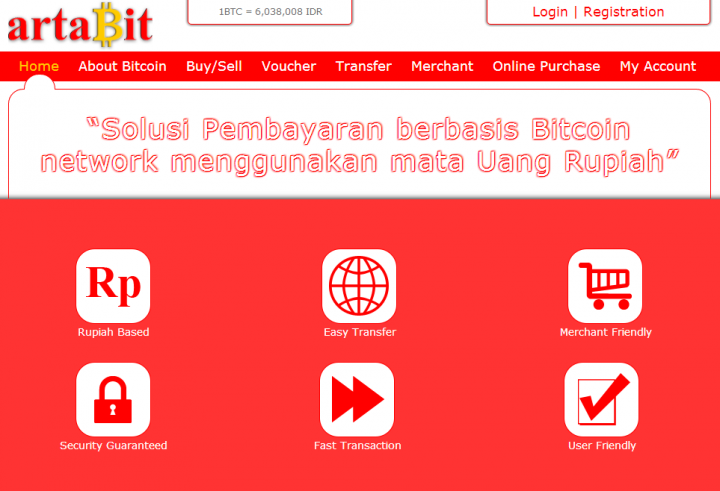Can Bitcoin solve Southeast Asia’s electronic payment problems? Artabit says yes
The team from Artabit, a US and Indonesia based bitcoin startup, takes the stage at Startup Arena Jakarta 2013 today to discuss their plans to improve Southeast Asia’s electronic payment problems using Bitcoin.
Bitcoin is attracting attention all over the world, and Southeast Asia is no exception. But in the cash-driven societies prevalent throughout the region, resistance toward any new payment method comes as a major challenge to forward-thinking entrepreneurs. In order for Bitcoin to succeed, foundations for an accessible infrastructure must first be laid out. Artabit hopes to tackle this problem.
“There is hesitance in investing time and resources to incorporate a new payment system that is still in early adoption stage.” says founder Ayoub Naciri. “Our approach to address this resistance is by minimizing and simplifying the requirements from our customers’ end.”
The company is developing Bitcoin payment solutions for the Indonesian and wider Southeast Asian market. The overarching theme is that Artabit drastically lowers the barrier to entry into Bitcoin, simplifying complex processes that previously only tech-savvy users could take advantage of. It does this in three ways:
First, Artabit can help online merchants so they can start accepting bitcoins as a payment method.
Second, Artabit an act as a third-party that connects online shoppers and online retailers. Customers that want to spend bitcoin on e-retail websites that don’t yet accept it can send bitcoin to Artabit, who will then send local currency to the vendor.
Third, Artabit can help foreign workers use bitcoin to send money back home, in a process known as remittance. Neither the sender nor receiver need to understand or even be aware of the existence of Bitcoin,” says Ayoub.

Like most countries, Indonesia is still in the very early stages of Bitcoin adoption, but Ayoub says people are gradually warming to it. “Because Bitcoin solves some of the typical problems of emerging and developing countries such as large unbanked population and restricted credit card access,” Ayoub says, “we anticipate that adoption will take places earlier in countries like Indonesia than in advanced economies like the US or Europe.”
(See also: Bitcoin will change the world, but no one knows how)
So far, the company has completed its proof of concept phase with a basic platform that can handle low to moderate transaction levels. Next, they will develop a more robust platform, fully integrated with a local Indonesian bank. Ayoub says Artabit plans to be operational in the first half of 2014. They are currently securing the necessary licenses from regulators.
At Startup Arena, judge Naoshi Suzuku of Global Brain showed concern about Bitcoin’s legal and volatility issues. Judge Jimmy Rim from K-Cube ventures had some of the same concerns about resistance to change as Ayoub himself. Saemin Ahn then drilled Ayoub on what happens if the value of Bitcoin changes mid-transaction, which Artabit plans to offset with liquidity pools. Khailee Ng from 500 Durians told he liked the idea, but that his pitch “sucked.”
This is a part of our coverage of Startup Asia Jakarta 2013, our event running on November 21 and 22. For the rest of our Startup Arena pitches, see here. You can follow along on Twitter at @TechinAsia, and on our Facebook page.
(Editing by Josh Horwitz)
The post Can Bitcoin solve Southeast Asia’s electronic payment problems? Artabit says yes appeared first on Tech in Asia.


